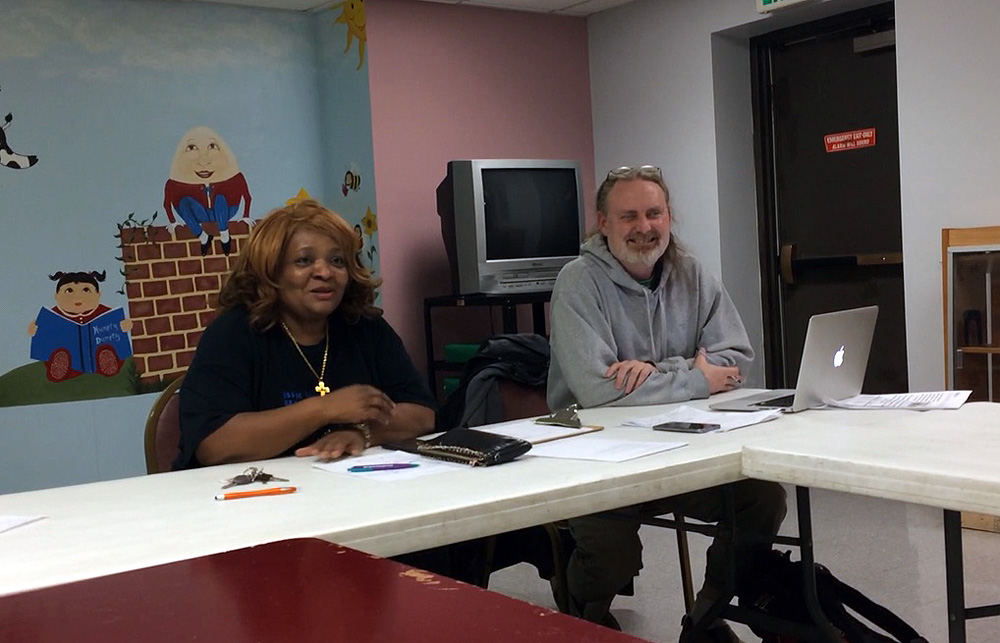
Rev. Cheryl Rivera, left and Thomas Franks
Community Strategy Group looks forward to 2018
Contributed By:The 411 News
We are the people we've been waiting for. We're not looking for anybody to do something for us.
What is a superfund site? What is a consent decree? What is lead and arsenic contamination?
During the Summer of 2016, a scraggly group of East Chicago residents saw a common interest in trying to make sense of the sudden closing of the West Calumet Housing Complex and the evacuation of its residents; the shuttering of Carrie Gosch Elementary School, next door to the housing development, and transfer of its students to a different school across town. Thus were born two community advisory groups – the Community Strategy Group and the East Chicago Calumet Coalition.
Outrage and anger swelled at local elected leaders, state and federal officials as the environmental disaster unfolded. West Calumet was sitting on soil so contaminated with lead and arsenic, it was determined uninhabitable and East Chicago Mayor Anthony Copeland said he would demolish it.
Soon after, testing of soils in nearby residential neighborhoods showed similar unsafe levels of lead and arsenic. Questions arose about the safety of the city’s drinking water.
At the Community Strategy Group’s last meeting of the year, held in the basement of the Pastrick Branch of the East Chicago Public Library, Rev. Cheryl Rivera summed up 2017. “We’re not looking for anybody to do something for us. We are the people we’ve been waiting for.”
The plight of the low-income black and Latino populations brought national attention and allies. “Our first victory was ending the rent payments by residents of the housing complex to the East Chicago Public Housing Authority,” Thomas Franks said about the agreement they negotiated for complex residents, “even though our attorneys advised us against asking for it.” A group of environmental lawyers from universities are providing free legal advice.
“Don’t forget up to $5,000 in subsidies was allowed for some families moving out of West Calumet to buy major appliances and furnishings for their new dwellings,” Rev. Rivera added. The last residents of the housing complex were gone by March 2017.
The two groups led the way on Indiana declaring a state of emergency existed in East Chicago.
Some homes in the affected neighborhoods have received water filters for their faucets and funds were designated for some homes to replace the lead service lines that delivered drinking water.
With support from northwest Indiana’s state elected officials, the groups were successful in ending the storage of PCB-laden sediments dredged from the Indiana Harbor Ship Canal. The sediments are being stored at a landfill close to East Chicago’s Central High School and the transplanted Carrie Gosch Elementary School.
Their latest effort targets the air pollution violations at Indiana Harbor Coke, a company that provides coke for blast furnaces at local steel mills. According to U.S. EPA documents, many of the violations last year were because coke ovens weren't sealed properly to keep toxic gases from being released into the air.
At the November permit renewal hearing for the company, the Community Strategy Group was among the voices asking the Indiana Dept. of Environmental Management to make the company fix the violations or shut it down. Franks said he helped the East Chicago City Council write their resolution opposing the renewal of Indiana Harbor Coke’s permit.
IDEM will make their decision in 2018.
Story Posted:12/13/2017
|